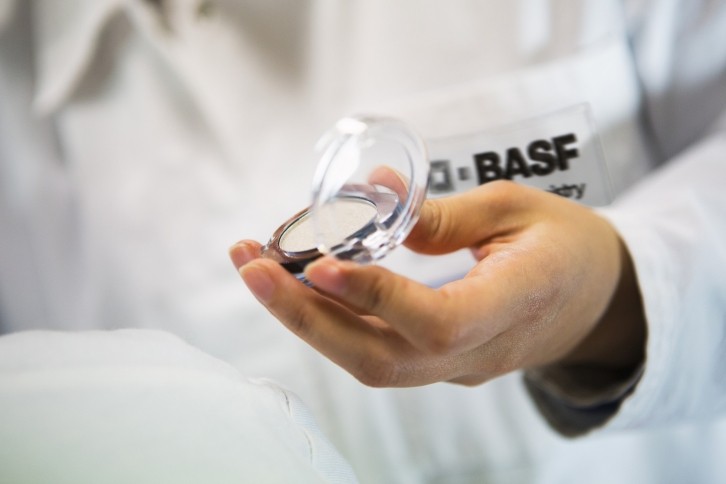Highlights from the German cosmetics chemicals company include a new method for visualising skin models, innovations in AI-selected ingredients, a sun care tool in partnership with Kenvue, and new digital tools that will support sustainability…
The 34th Congress of the International Federation of Societies of Cosmetic Chemists (IFSCC), will kick off this year between 14th – 17th October in Foz do Iguaçu, Paraná, Brazil.
At the world-famous conference, top ingredients experts and cosmetics scientists from across the globe will unveil their newest discoveries and innovations to the cosmetics science community.
The German chemicals company BASF said it will put a focus on hair care, skin care and sustainability at this year’s conference.
According to the company’s director of personal care for South America, Fábio Cahen, as well as unveiling BASF’s latest research, the company will also demonstrate that: “the sustainability journey of our production processes in Brazil are also being followed.”
A focus on hair care & skin care
The growing hair care sector has been a big area of research for BASF and this year it will unveil a variety of research in this category.
These include, a poster entitled “Artificial Intelligence to help improve sensitive scalp of people with textured hair”, which discusses how AI generates solutions for textured hair, such as new natural anti-inflammatory peptides that help naturally soothe and hydrate the scalp.
It will also show another poster: “Hair performance of lipid layer enhancer through a bio-based mixture in rinse-off cosmetic formulations”, which will evaluate the efficacy of its Lamesoft® PO 65 ingredient – a derived natural mixture that claims to restore hair health.
In terms of skin care research, BASF also plans to cover skin care and will present a new imaging methodology that addresses challenges, such as the natural opacity of skin tissue and limitations of microscopic analysis.
This research will be presented by Oussama El Baraka, Ph.D. Responsible Organoids and Hair Models, and is entitled “Deep dive in skin structures thanks to high-resolution clearing histological method.”
“The optical clearing method increases depth and resolution, allowing for the evaluation of the entire tissue for dermo cosmetic research,” explained the company.
New sun care partnership with Kenvue
BASF has also partnered with beauty products manufacturer Kenvue for research in the sun care sector. BASF has created EcoSun Pass, a scientific tool that supports the choice of ingredients in sunscreen formulations.
Andressa Peyrot, who is senior product development scientist at Kenvue is set to present “Sunscreen formulation to optimise efficacy, efficiency, and environmental health using EcoSun Pass® technology,” a tool that evaluates various sun care formulation parameters such as aquatic toxicity, bioaccumulation, and biodegradability to ensure the product receives a seal that guarantees it’s coral safe.
Cosmetics ingredients sustainability in the spotlight
On this note, sustainability is also high on the agenda for the company at IFSCC.
Its Care Chemicals digital solutions area has developed the poster “Uncovering sustainable personal care ingredient combinations using scientific modelling,” which will support the replacement of synthetic and non-biodegradable ingredients in formulations.
It also plans to share more details on its Surfactant Navigator and Emollient Maestro tools, which it hopes will “drive sustainable and innovative transformation in the sector,” while the poster: “A sustainable and high-performance emollient alternative to petrolatum in cosmetic formulations” assesses its ingredient Cetiol® SoftFeel – a molecule derived from 100% renewable ingredients, which the company claims can replace “a number of controversial emollients.”
With traceability in the limelight, cosmetics ingredients companies such as BASF are developing increasingly sustainable solutions for responsible sourcing of raw materials.
To demonstrate its work in this space, BASF will present “How Digital tools can support in reaching traceability goal? Example of argan supply.”
This will show how it’s using its digital tool to monitor and transparently track the supply of argan oil from Morocco and ensuring fair compensation for producers.
BASF said that it took key learnings from this project and also established a new supply chain for another plant ingredient it works with – rambutan – and is supporting rural producers in Vietnam with the aim of creating a positive social impact, with results detailed in the poster “Sustainable access to rambutan and benefit-sharing in Vietnam.”
This research will present three new ingredients obtained from parts of the rambutan that would have otherwise been discarded.
And finally, as IFSCC is in Brazil this year, the case study “Embracing Life Cycle Thinking: A Case Study of Sustainable Practices at BASF Jacarei’s Production” will share more details on the sustainable practices at BASF’s factory in Jacareí, São Paulo.

